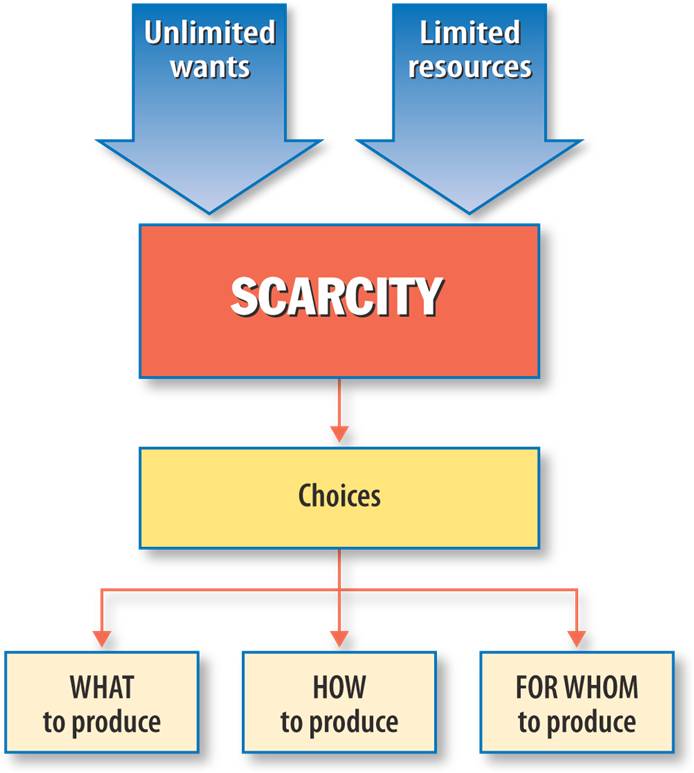
SCARCITY, CHOICE AND OPPORTUNITY COST
Majority of individuals in the past and even today would probably prefer to have more of many goods which are of better quality than that which they possess at present, like houses larger than their current ones in which to reside, furnished with perhaps, the latest labour-saving devices, this is typical of human beings. Majority of the women have also exhibited an insatiable desire for jewellery and clothing. Surprisingly the wants of individuals are many and they will never have enough, but the resources required for making their wants are in limited supply– labour, land, raw materials, factory, buildings, machinery e.t.c.
Scarcity
Scarcity simply means that there are not enough economic resources to fulfil the wants and desires of every individual to the point of satiety. This is why people work, so they can get more of the scarce resources with an aim of fulfilling their wants which are unlimited. To an economist, every economic resource or any other resource is scarce, and this is on a view based on positive economics.
Choice
Due to the fact that economic resources are scarce, individuals must then make a choice of which resource to take and which resource to leave or on the basis of proportion. This also affects countries where they have to make a choice on which Economic resources to produce and which not to produce, depending on their revenue. Hence, choice involves sacrifice. In economics we talk about the Economic Man, this is because it is assumed that individuals always choose the alternative which will yield them the greatest satisfaction.
Opportunity Cost
Since we have seen that resources are scarce, they must then involve choice, and in choosing, an individual always chooses that which they perceive will reward them with greater satisfaction and forgo that which they perceive will reward them with little satisfaction. In having forgone the little rewarding opportunity, it will encompass a cost since the individual will have to acquire it elsewhere at a cost, hence opportunity cost. We therefore describe opportunity cost as "the cost of the best alternative forgone". An example is for a country that has a choice between having guns and having sugar, and the country chooses to have guns instead of sugar, it will be giving up sugar to have guns. Hence the cost of having guns can be regarded as the sacrifice of not being able to have sugar.
No comments:
Post a Comment